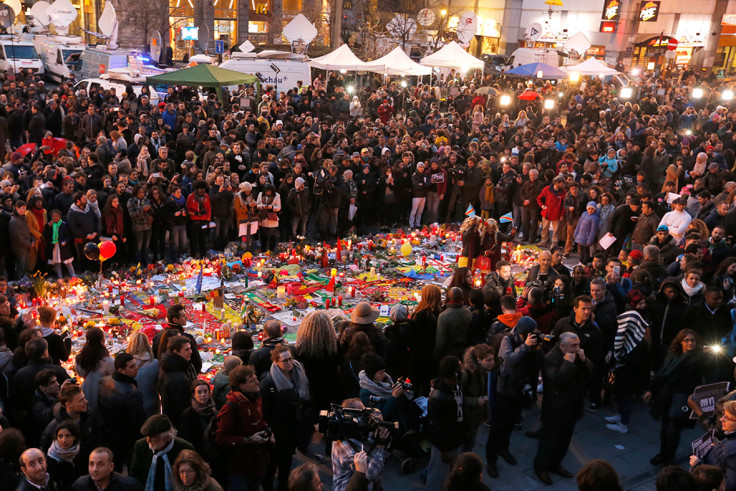Brussels attack: US long frustrated by Belgium's inept struggle with militant threat

American officials have long been exasperated by Belgium's lack of cooperation and apparent ineptitude when it comes to dealing with militant security threats within its borders, officials have revealed. US authorities believe the small nation is overwhelmed by what it must do to deal adequately with the threat that faces a key airport and within a country in the heart of Europe.
The nation seems to breed terrorists, and has supplied, per capita, the highest number of foreign fighters to Syria compared to any European nation. Shortly after the terror attack in Paris in late 2015 — by a Brussels-based Islamic terror cell — a top US counterterrorism expert came to Belgium to offer his expertise. But Belgian officials said they were too busy to meet with him, Reuters reports.
Several American officials told Reuters that coordinated security efforts have been hampered by patchy intelligence–sharing by Brussels, and wide differences in the willingness of different agencies to work with foreign countries — even close allies. It's even difficult to determine which agency or official holds key responsibility for dealing with an imminent threat.
Belgium is trying to deal with the mounting danger. It is boosting its security budget, and has promised to recruit some 2,500 more federal police to pursue major crimes. But that's in part to make up for a current significant shortfall of close to a fifth of the full-strength force of 12,500.
Some officials have declared that they would now welcome increased cooperation with other nations. "These attacks show that more coordination with the United States is clearly desirable," Guy Rapaille, the president of the committee that provides oversight of Belgium's security and intelligence services, told Belgium's state broadcaster RTBF. But he also indicated that the US may not be as willing to share information as it seems, adding: "You have to remember that big powers guard their intelligence very closely."
Some analysts believe the lack of cooperation between Belgium and the US could be a cultural gap — that Belgium's greater commitment to protecting personal privacy, such as information on residents' travel arrangements, make officials reluctant to turn over details that American security expects as a matter of course, particularly in the wake of 9/11.
Three of the terrorists in the deadly Brussels attacks were on a US security watch list. In addition, Turkey had also deported Brahim el-Bakraoui after arresting him at the Syrian border. El-Bakraoui and his brother, Khalid, blew themselves up during the Brussels attack. Turkish officials had warned Belgium that el -Bakraoui was a "foreign fighter" but their warnings were "ignored," said Turkish officials.
Belgium's Interior Minister Jan Jambon and Justice Minister Koen Geens offered to resign because of admitted errors in tracking the bombers before the attack. But Prime Minister Charles Michel refused to accept their resignations, saying "in time of war you cannot leave the field."
© Copyright IBTimes 2025. All rights reserved.






















